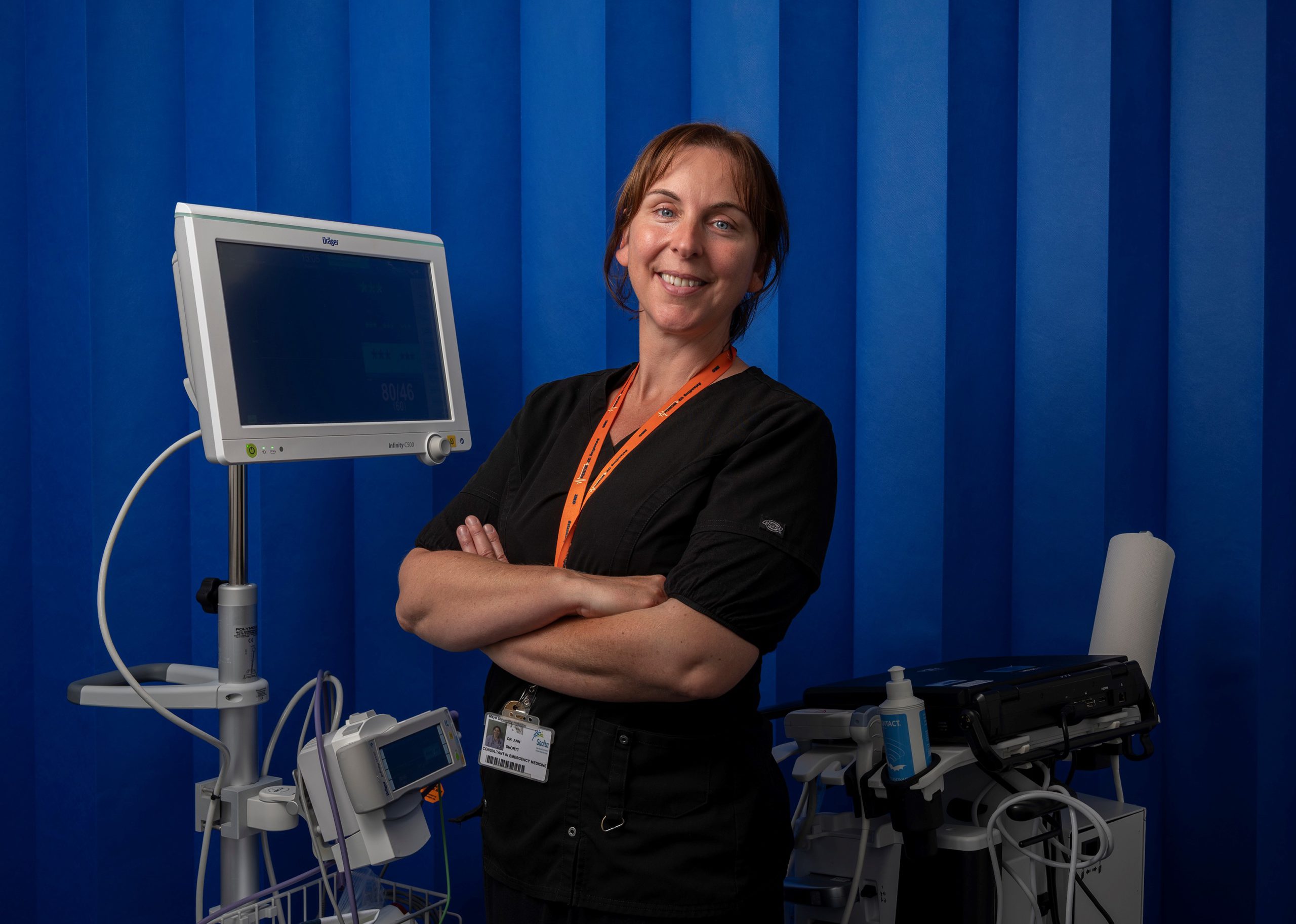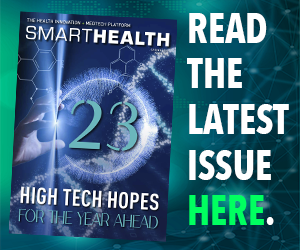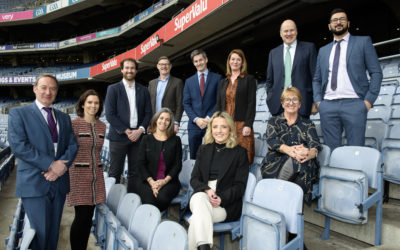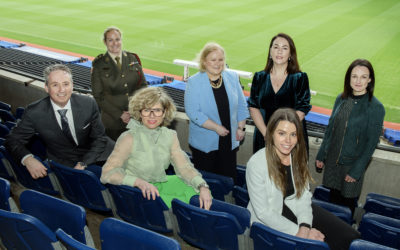As a practicing A&E consultant Dr Ann Shortt has experienced the guts and glory of the medical world first-hand. As c, over the past 12 years she has put that expertise towards transforming the approach to preventative healthcare. With fellow consultants, Dr Shortt has developed a framework for evidence-based reports that allow people to access and understand their own health data in simple terms, adding value to the industry through collaboration with healthcare providers. An advocate of educating people on the benefits of early intervention, tackling the root causes of preventable illnesses is at the core of her healthcare philosophy.
What inspired you to enter the world of digital health start-ups?
I am an Emergency Medicine consultant. I’ve spent many years pulling paper charts, holding on the phone for basic information and watching people present to the Emergency Department far too late to be of any actual use. Mostly, this is for the want of a basic understanding of their own health. Eventually, a particular patient encounter hit a nerve as it was an awful outcome, and entirely preventable with better communication.
You could say that my entry into the digital world was driven by pure rage after that. A few like-minded consultants got involved at that point, and we created Full Health Medical to use software to enhance communication and overcome the bottleneck of staff shortages.
Full Health is a medical software company that automates workflow for medical assessments – most importantly by replicating the doctor’s thought process when interpreting patient medical results. It removes inefficiencies relating to patient flow, from appointment booking at the start, to the electronic patient portal at the end.
It automates the routine workload for doctors freeing them up to concentrate on patients who need their attention. Initially, it wasn’t supposed to be a business at all, but now the technology is sold under licence to a range of healthcare providers, from pharmacies to GPs, to hospitals across the UK and Ireland. Every clinical interaction should, and can, be useful if the person understands the language.
What has been your experience with healthcare and entrepreneurship?
They are two different worlds – poles apart! In the hospital world, everyone’s knee-jerk reaction to a crisis is to hire more doctors and nurses, which is fair to a point. Nobody asks what it is all these people are doing? What in their workload is repetitive and could be automated? People work hard, so hard that sometimes they can only concentrate on staying afloat, not redesigning the swimming pool. My experience of entrepreneurship has been incredibly positive.
People are wide open to ideas and extremely supportive. We have had incredible support and help along the way from our investors, mentors and friends in business, and Enterprise Ireland. A critical piece of advice for anyone starting in this space is that occasionally I have seen start-ups go quite a long way without really having buy-in from the doctors and nurses on the ground. This was core to our credibility.
How does Ireland fare with medical workflows and how can it meet digital health demands over the coming decade?
Poorly right now but massive change is on the way! The health service is such a colossal, labour-intensive machine that it trundles along in a manner which makes it extremely difficult to change any process. IT systems that do exist don’t talk to each other and there is duplication of work, plenty of opportunity for mistakes and illogical patient journeys.
I do have great hope for the future, however, as there are some incredibly talented people who all share the viewpoint that the only way out of this is to embrace technology. The digital transformation team within the HSE has brought together senior clinicians, software development teams and entrepreneurs and put everyone in a group to crossgenerate ideas and projects. Some are obvious, such as why we transport elderly, frail patients to hospital for an X-ray through the ED? Why can’t we bring the X-ray machine to the patient? Others are more subtle, such as connecting physicians and streamlining the information flow.
How can the biggest challenges to preventative care be overcome?
Not investing in preventative health is a false economy that costs billions of euros to the health services and the wider
economy down the line. The biggest challenge is changing our healthcare model from sick care to keeping populations healthy. It requires moving more of our budget to preventative actions.
In this shift, individuals themselves also need to take more personal responsibility for their health, incentivised by government. The second biggest challenge to preventative care is communication. There is simply no point in doing a wheelbarrow full of blood tests when the patient changes absolutely nothing as a result.
The part that has been missing is not a fancier test – it is an understanding of basic medicine. Individuals need to understand what normal looks like, where they stand with it, and what they need to do next … in plain
English. Empower the patient to be in charge.
What role does your work as an A+E Consultant play in delivering value with Full Health Medical?
I’m dual qualified as an Emergency Medicine consultant and in General Practice. Both are broad specialities embracing everything in the field that interferes with the health of the people you’re trying to help. My key role is ensuring the appropriateness and accuracy of the medical content the technology communicates back to patients.
Who is impressing you most in health innovation right now?
Martin Curley and the team of people involved in the HSE Digital Transformation unit are advancing a range of breakthrough projects that will dramatically improve healthcare in Ireland. The Irish Digital Health Leadership Steering Group came out of this, and it put senior clinicians, successful businesses and entrepreneurs in a room together for the first time.
Several Living Labs are up and running out of this, including some game changers. xWave has the potential to drastically cut down the waiting lists in radiology. Mobile Medical Diagnostics brings the X-ray machine to the nursing home and primary care centres instead of moving frail elderly people into the Emergency Department.
There’s not enough space to mention them all! We’re really impressed with the group behind CarePlus pharmacies. With support from the HSE, we’re working with them to get as much of the population as possible to understand their own health.
The only way to do this is to make medical checks as easy as walking into your local pharmacy. Pharmacists are under-utilised in primary care – yet there is a pharmacy in every community. This is a no-brainer and a great initiative.
What is the one thing everyone should do when it comes to being smart about their health?
One thing? Can I have five??
- Buy a blood pressure monitor in the pharmacy and understand the numbers. Track your numbers in different circumstances. Everyone can tell you their weight straight off – how much pathology would be avoided if the same could be said about blood pressure?
- Buy a glucose monitor from the pharmacy and learn what particular foods do to your sugars around two hours after you eat them. Nothing informs your shopping list quite like it.
- Measure your sleep. People tell you that they are ‘terrible sleepers’ and offer it up as a fact. They would never tell you their cholesterol is off the charts without addressing it. Sleep is every bit as important and there are plenty of adjustments to your evening routine that can improve sleep if you work on it.
- To keep the mobility you have as a young person you have to stay moving like a young person. Stretch, do yoga, do handstands (consider that one on an individual basis!)
- Do weight-based exercise as well as cardiovascular. Squats and weights are for everyone – they are no longer the sole remit of the gym enthusiast.
Anatomy of a doctor
What has been most inspiring or memorable during your time practising medicine?
Working in emergency medicine is often memorable. It’s fun. You develop a little bit of a dark sense of humour and there are certain interventional procedures that you do, albeit rarely, that give you several hours of euphoria, such as a collapsed lung or the satisfaction of a nice shoulder dislocation. Some of the people working in Emergency Medicine are inspirational themselves. A long-time Emergency Medicine physician in Letterkenny, Gerry Lane, is one of the most inspirational physicians and teachers that I have ever met.
What has been your biggest lesson?
It is necessary to have clarity of thought and communicate well. On some days, a huge proportion of the patients in the Emergency Department don’t have an actual emergency or an accident for that matter. Communication, and empathy, are essential or the whole place backs up with people who shouldn’t have been in the Emergency Department at all.
How did your early experiences of health shape you as a healthcare leader today?
Medicine is a humbling sport. When I was younger, I thought I knew more. Healthcare and life have taught me not to judge people, that not everyone was raised in a supportive home and that some people come to a place because they have faced more adversity than anyone knows about. Kindness matters. Hard work does too.






